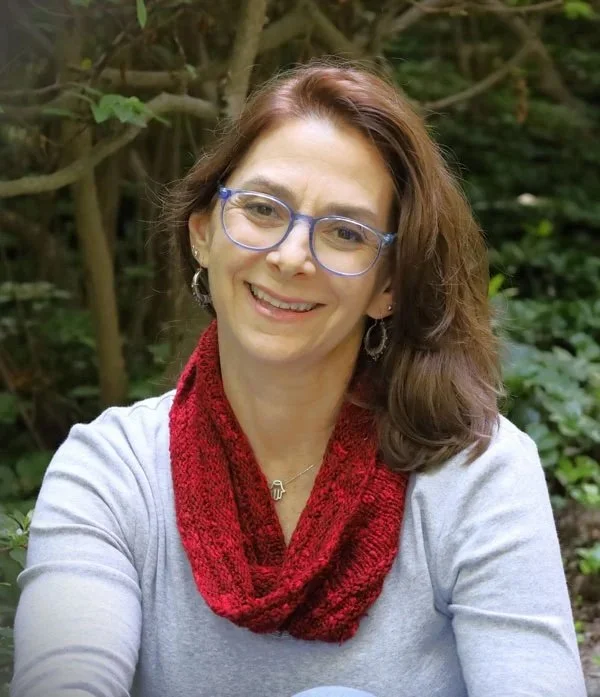Are You Feeling Uninspired?
Dear Friends,
I am in a rut. I have a picture book on submission, and a novel in the hands of a reader. As I sit at my desk during my dedicated writing time, all I can think is that I am not inspired.
Nothing is coming to me. Truly.
If I’m being honest, I’m kind of tired. Burned out. And, cold. (There is WAY too much snow in Toronto. Our car is stuck in a snowbank and looks like an igloo, and dog walking is an obstacle course.)
When I recently bemoaned my lack of inspiration to Gary Schmidt, he quoted the movie Meet Joe Black to me, assuring that “things have a way of working out.” And in my heart, I know that is true. A new idea ALWAYS comes. EVENTUALLY.
This is not the first time that I have felt uninspired. And it will not be the last. Our creative wells fill and empty depending on where we are physically, emotionally and mentally.
So how do we replenish?
We have multiple opportunities to inspire you next month. Two affordable workshops designed to spark your creativity, and one eight-week workshopping opportunity designed to help you grow skills and get inspired with a community of writers.
For even more inspiration, I reached out to our faculty to ask them how they rekindle their creativity when they are in a writing slump. Their nuggets of wisdom are below.
As for me, I'm practicing being kind to myself. I made a list of almost 65 picture books I've missed in the past two years, and I'm reserving them in batches of 15 from the library. I'd like to experiment with some free writing prompts, and I'm going to trust Gary that things really do always have a way of working out.
All the best,
Shari
How Do Our Faculty Members Stay Inspired?
Heather Camlot
For better or worse, I read the news a lot. I email myself links and tear articles out of the newspaper or a long-form magazine like Smithsonian and drop them into online or paper "story ideas" folders. Eventually, I look through those folders and reread articles. At the very least, this exercise gets me thinking and if I'm lucky, it gets me planning and writing.
Kathryn Erskine
I don’t follow the you-have-to-write-every-day school of thought. It just makes you feel bad when you miss a day. If you’re feeling tired or uninspired, it’s OK to take a break. Go for a walk, play an instrument, cook, dance, play with your dog, create art. Do something nonverbal to give the wordy part of your brain a rest. I do believe that a writer’s mind is always working, even the subconscious. Ideas are percolating. Jot down that thought or catchy title or perfect sentence. (See, you wrote something today, but without any pressure!)
Liz Garton Scanlon
When I finish a project, I often need to wander around in a non-writing space for a bit. It helps that I've been ignoring everything besides writing, so there's laundry to do and friends to see and emails to answer. But also, I like to take long walks and see a few movies and read poetry and wait for birds to visit the feeder. Under my breath I'm whispering, 'What if I never get another idea?' but then at some point, I do. At least so far.
Evan Griffith
As a way of refilling the well, I’ve recently been keeping what I call a “curiosity journal.” I jot down anything that is currently sparking my curiosity. And I mean anything—it could be a song, an animal, a conversation at the grocery store, a feeling I’m having. I brainstorm questions—things I’d like to learn in order to understand this thing or experience better. And I think about where I might turn to find answers. I find that this curiosity-driven, discovery-oriented mindset is fertile ground for new story ideas. So I’m working to cultivate it.
Leah Henderson
When I am uninspired, or struggling to catch hold of the essence of an idea, I try to approach things another way ’round. Instead of thinking about what I am not writing, or how idea after idea keeps falling flat, while out in the world living, I’ll ask that all important question: What if? What if a kiddo found this pebble? And what if when they picked it up . . . . I’ll keep asking what if of anything and everything I see, taste, touch, hear or experience. Sometimes that helps to reactivate my brain and get me curious or excited about something. But if not, I will be even more intentional about really seeing and looking when I am out and about with the hope that the possibility of story will find me (and oh so important—that I will notice!).
Karen Krossing
I used to worry that I’d run out of story ideas. But now I think I have a natural ebb between projects, and that’s okay. I can’t force the inspiration stage to happen. I can accept the in-between though, and honor it. Sometimes, I take on other creative projects, like once I hand-painted my kitchen chairs in fun patterns. Sometimes, I catch up on my reading. Sometimes, I play brainstorming games, like writing five premises daily for a month to remind myself how to find inspiration. Several of my books began from inspiration games. Sometimes, I read my list of past story ideas to see if anything sparks. But my best way into new ideas is to write for myself. Not to publish. But to play with the thoughts and feelings currently occupying my brain, heart, and body. What pain and joy do I feel deep inside? What burns to be written by me and why? I follow the fire to find my spark.
Laura Shovan
Right now, I'm hosting my annual month-long poetry project. About 35 people participate every year. There's a theme (this year it's space). Members of the group volunteer to create a prompt for each day of the month. Many people write every day, and we post our drafts within 24 hours if possible. What I've found over the 13 years of doing this project is that it helps to have a starter or idea that doesn't come from my own brain. Writing the poem becomes a puzzle to solve, something to figure out.
Want to learn more about Laura’s poetry project and the benefits of on-the-spot writing? Check out her article in Writer’s Digest.
Shelley Tanaka
The best way to raise your spirits and find writerly inspiration? Hang out with kids. If you don’t have kids in your life and can’t borrow one, visit your neighborhood park or public library on a Saturday morning. Or sit near a gang of teenagers on the bus and eavesdrop (don’t worry, you’re invisible to them). Or, best of all, watch parent-tot swim time at your local pool — a guaranteed tonic. These are the kids who will inherit the world we leave behind. What stories do they need? How can you make your book irresistible to them?








